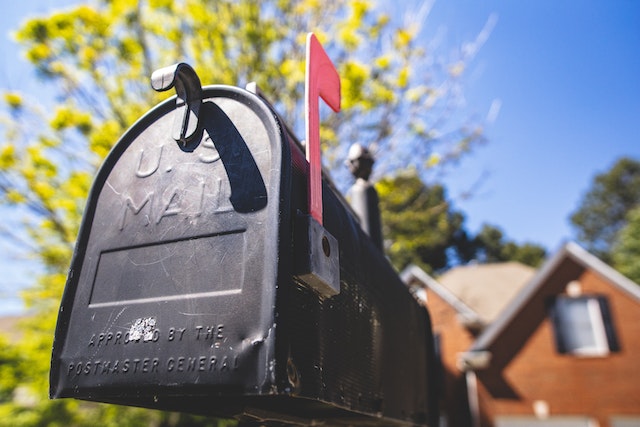.jpg)
Are you a landlord who's puzzled about what to do with mail addressed to former tenants? Don't worry; you're not alone. Dealing with mail from previous tenants is a common challenge that many landlords face. That's why we're here to provide you with an easy guide on how to handle this situation with ease.
In this article, we'll walk you through practical steps and valuable insights to ensure you handle mail from previous tenants responsibly and professionally. From understanding the legal considerations to establishing effective procedures, we've got you covered. Our guide will also delve into communication strategies with tenants and present practical solutions for managing mail efficiently.
By following our expert advice, you'll not only demonstrate your commitment to maintaining tenant privacy but also foster positive landlord-tenant relationships, not only with the old tenant but with current tenants as well. These positive relationships can help ensure your tenants stay longer, avoid tenant damage, and open communication.
So, let's dive in and discover the best practices for handling mail from previous tenants, ensuring a smooth transition between occupants while keeping everyone satisfied.
Common Questions About Mail From Previous Tenants
Whenever the situation of receiving mails from previous tenants comes up, there’s always a list of questions and doubts that come along. Here we have answered a few questions that most landlords are confused about.
Is It Permissible to Examine, Dispose of, or Destroy Mail Belonging to Previous Tenants?
No, it is illegal to examine, dispose of, or destroy mail that belongs to previous tenants.

Engaging in such activities can result in severe consequences, including imprisonment for up to five years or substantial fines, as it is considered theft.
Furthermore, shredding or discarding someone else's mail is also regarded as a form of theft. It is essential to refrain from engaging in such actions.
Is It Permissible to Fill Out a Change of Address Form for Previous Renters?
Although it might be tempting to assume responsibility and complete a Change of Address form on behalf of a previous tenant, it is unfortunately not allowed. A Change of Address must either be filled out by the old renter, a guardian or executor, or authorized agent.
Although changing the address might keep your renters happy, engaging in the completion of a Change of Address form without the proper authority is considered a federal offense. It is important to note that such actions can lead to potential fines or imprisonment.
What if My Tenant Has Passed Away and I Continue to Receive Their Mail?
Unfortunately, a tenant may pass away, and as a landlord, you may find yourself receiving their mail. While you might expect the family to handle the deceased tenant's mail, this is not always the case.

If you need to stop receiving mail addressed to a deceased tenant, you can follow these steps:
Visit the Direct Marketing Association website and input the name of the deceased tenant. It typically takes around three months for the change to take effect. Keep in mind that this may not completely eliminate all junk mail, as only companies using marketing or mailing lists will get the notification. However, it should significantly reduce the amount you receive.
Write "Deceased, Return to Sender" across the envelope. If this doesn't resolve the issue, consider speaking with your mail carrier or visit your local post office to resolve the matter.
As a last resort, if the previous steps do not work, you may need to contact the companies sending the mail directly. This option can be time-consuming, but may be necessary to ensure the mail is properly redirected.
By following these steps, you can proactively address the situation and minimize the amount of mail you receive for a deceased tenant.
Can I Throw Away Mail from Previous Tenants?
Landlords are not allowed to throw away or destroy mail that’s for a previous tenant. It is a federal offense to get rid of mail that belongs to someone else. As mentioned above, filling out a change of address form for previous renters is also illegal.

But, what if the letters you receive for the previous tenant are just junk mail? Even if it may be tempting to throw them in the trash, they are still protected by the law. You could face legal consequences for getting rid of or discarding them.
While it is illegal to dispose of someone else's mail, it's important to know that landlords are not responsible for keeping the mail they receive for the old tenant for a long time. You can legally intervene if the old tenant refuses to fill out a change of address form. It is the old tenant’s responsibility to change their address and collect their belongings.
If the previous tenant refuses to fill out a change of address form, leaving you with their mail indefinitely, you might have a valid reason to seek legal help. Our tip is to remind the previous tenant to change all their addresses before you begin writing a new property listing and searching for a replacement tenant.
Final Thoughts
By following the recommended steps and adhering to legal requirements, you can navigate this common challenge with professionalism and respect for tenant privacy. As you continue your journey as a landlord, it's important to remember that managing properties involves various responsibilities.
If you find yourself overwhelmed or seeking additional support, consider hiring a reliable property management company: Foothills Properties. With our expertise and dedication, we can help streamline your operations, handle tenant communications, and ensure efficient email management, allowing you to focus on other aspects of property ownership.
By maintaining a proactive approach and seeking assistance when needed, you can create a positive and successful rental experience for both you and your tenants.








